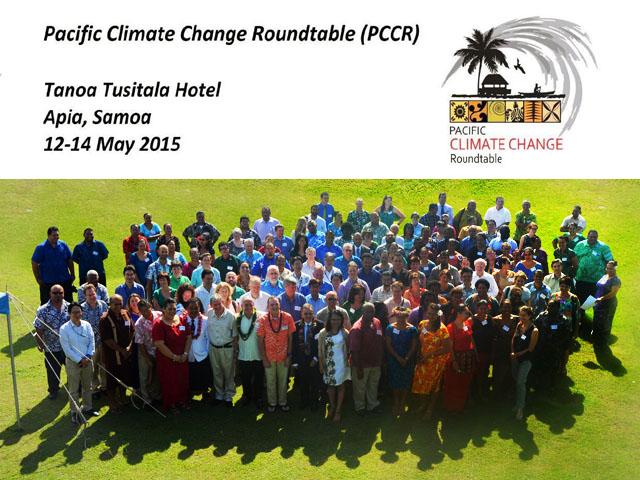SPREP – Round table on climate change 12th-14th of May 2015
23 July 2015

The Secretariat of the Pacific Regional Environment Programme (SPREP) organised the round table on climate change from 12th to 14th of May in Apia (Samoa).
All Pacific Island countries which are member countries of SPREP were represented at this round table, most of them by experts in charge of the environment and climate change. France, Australia, the United States, New Zealand and the European Union were also represented.
Chaired by Samoa’s Prime Minister and Minister of Foreign Affairs, Mr. Tuilaepa Malielegaoi, and the Director-General of SPREP, Mr. David Sheppard, the opening session was an opportunity to remind us of the consequences of climate change for Pacific Island countries and to congratulate SPREP for its accreditation as the regional organisation responsible for the implementation of the Green Climate Fund. In addition, underlining the importance of the COP 21, some 150 participants were invited to use this round table as a means to remind and prepare themselves for the objectives and stakes concerning the COP 21.
The round table on climate change allowed for the implementation of projects to be reviewed within the framework of the Pacific States’ action plan on climate change 2005-2015, which was decided by Pacific leaders. It also enabled preparation for the future “Strategy for Climate and Disaster Resilient Development in the Pacific” (SRDP) with a view to its adoption by the leaders of the Pacific Islands Forum in Port Moresby in September 2015. For the first time, resilience to climate change and natural disasters will be integrated in the same strategy.
This meeting was also the occasion for the Small Island Developing States (SIDS) to present several projects led by communities at the local level and to observe a greater coherence with the directions given by the governments of the Small Island Developing States. The work undertaken over the three days enabled recommendations to be drawn up in order to improve resilience to the effects of climate change in Small Island Developing States, notably regarding adaptation measures, mobilisation of resources, management of knowledge, mitigation impacts and assessment of loss and damages.
